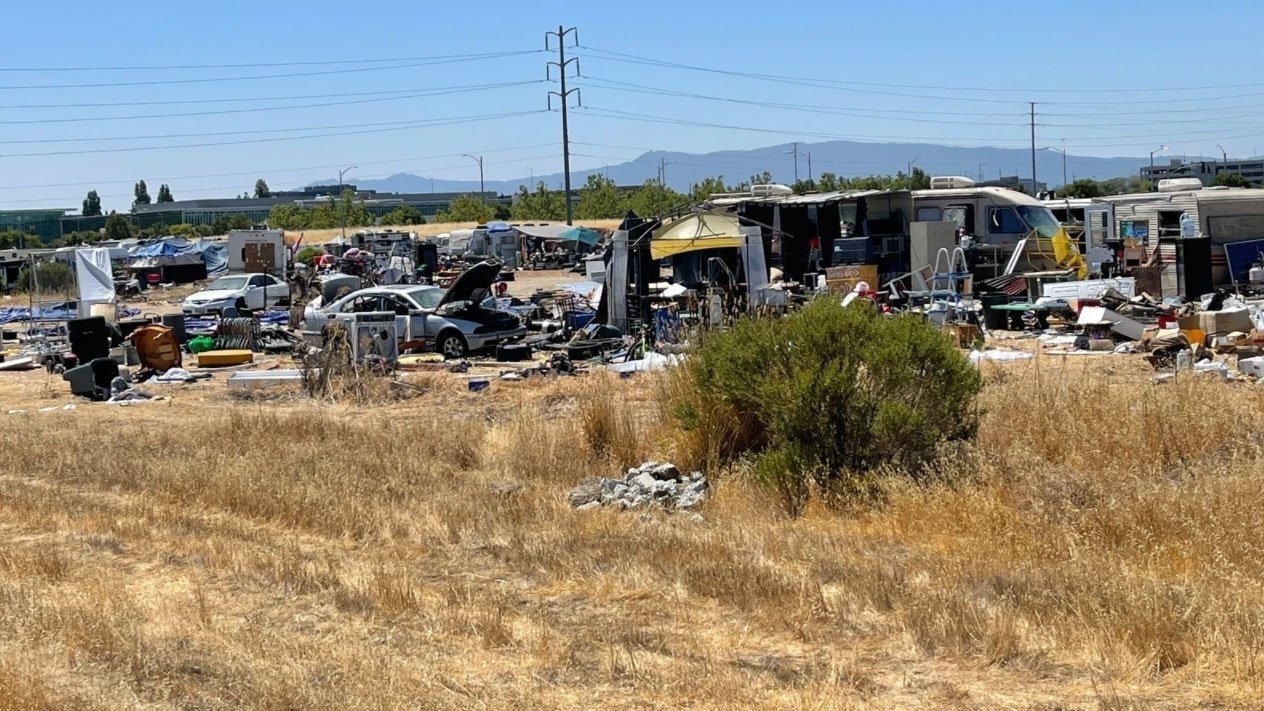Apple's homeless relocation project still hasn't found homes for everyone
Apple has spent millions supporting people moved from a homeless encampment on its property, but with nine months of support drying up, many haven't yet found permanent housing.
Following months of discussions in 2021, Apple evicted 56 people from a homeless encampment on 55 acres of Apple's land in September. Dozens of the displaced people were given lodgings in a motel for nine months, as well as assistance to find new homes.
Almost nine months later and with a deadline looming for the people, many are still unable to find a permanent home. Of the group housed in the San Jose motel, only eight were successfully moved on into a permanent home, FLTimes reports that more than three times as many people have yet to be rehomed.
"We know (the motel) worked quite efficiently for some program participants, and more time is needed for others," said Lori Smith, CMO of nonprofit HomeFirst, which runs the program funded by Apple. "Each person has their journey into homelessness, and each will have their path out - and rarely will they look the same."
Apple said it had "been working with partners across the state to support at-risk communities and provide new affordable units."
However, the project had obstacles in the form of a lack of appropriate affordable housing, managing the histories and medical needs of the participants, and other restrictions.
HomeFirst intended to find placements before the end of the motel program, but as of 16 May, 25 people were still at the motel. Those who were still there at the time of the deadline would be offered emergency shelter beds instead.
Those who did leave moved into a mix of permanent or transitional housing, including tiny homes and apartments, as well as with family members. More than a quarter of participants were connected to healthcare, or had Social Security or other benefits, with nearly all added to housing waitlists.
Ten were made to leave the program, due to either breaking the rules or after being arrested.
Though the program has cost Apple millions to operate so far, and helped a group of homeless people for nine months, it is still facing criticism for ending the program.
Activist Shaunn Cartwright complained that Apple had offered stability with a motel room, but then took that stability away. Pointing out how the residents benefited in terms of their physical and mental health, Cartwright insisted Apple should extend the program.
"If they end up on the streets, that is entirely Apple's fault. That is Apple's shame," Cartwright declared.
The plight of two unplaced participants are highlighted in the report. In the case of 65-year-old Bertha Iglesias, her plans are to move back into a trailer, and park on a street near her mother's house.
Richard Bebee was told by the program that he could get into permanent housing through the program, leading him to sell his truck and try and get a commercial driver's license. However, he was unable to raise the money to get the training and to take the test.
The 50-year-old Bebee was offered a place in a tiny home, but he decided not to take the opportunity.
HomeFirst CEO Andrea Urton underlined the critical role of Apple in funding the project, but there's only so far the program can go. Citing a shortage of permanent housing in the area, as well as how participants don't necessarily meet the criteria to be placed in housing, Urton admits "that is all we can do: provide service, support, encouragement, and allow them to make their own decisions."
 Malcolm Owen
Malcolm Owen












 William Gallagher and Mike Wuerthele
William Gallagher and Mike Wuerthele
 Christine McKee
Christine McKee
 William Gallagher
William Gallagher

 Marko Zivkovic
Marko Zivkovic









